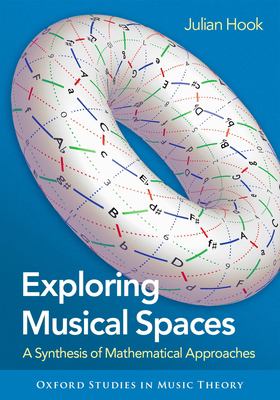Exploring Musical Spaces is a comprehensive synthesis of mathematical techniques in music theory, written with the aim of making these techniques accessible to music scholars without extensive prior training in mathematics. The book adopts a visual orientation, introducing from the outset a number of simple geometric models―the first examples of the musical spaces of the book's title―depicting relationships among musical entities of various kinds such as notes, chords, scales, or rhythmic values. These spaces take many forms and become a unifying thread in initiating readers into several areas of active recent scholarship, including transformation theory, neo-Riemannian theory, geometric music theory, diatonic theory, and scale theory.
Concepts and techniques from mathematical set theory, graph theory, group theory, geometry, and topology are introduced as needed to address musical questions. Musical examples ranging from Bach to the late twentieth century keep the underlying musical motivations close at hand. The book includes hundreds of figures to aid in visualizing the structure of the spaces, as well as exercises offering readers hands-on practice with a diverse assortment of concepts and techniques.


